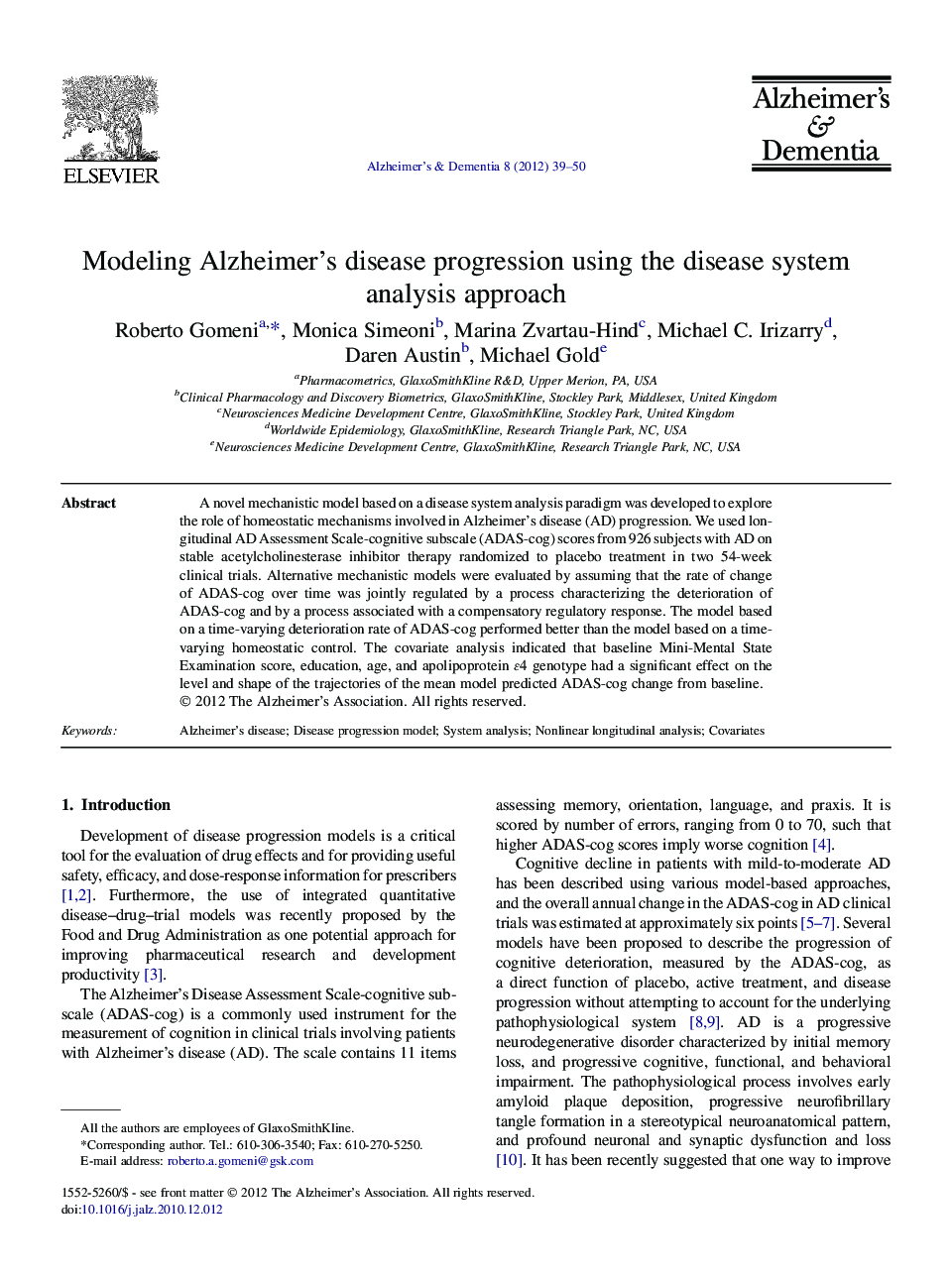| Article ID | Journal | Published Year | Pages | File Type |
|---|---|---|---|---|
| 5625080 | Alzheimer's & Dementia | 2012 | 12 Pages |
A novel mechanistic model based on a disease system analysis paradigm was developed to explore the role of homeostatic mechanisms involved in Alzheimer's disease (AD) progression. We used longitudinal AD Assessment Scale-cognitive subscale (ADAS-cog) scores from 926 subjects with AD on stable acetylcholinesterase inhibitor therapy randomized to placebo treatment in two 54-week clinical trials. Alternative mechanistic models were evaluated by assuming that the rate of change of ADAS-cog over time was jointly regulated by a process characterizing the deterioration of ADAS-cog and by a process associated with a compensatory regulatory response. The model based on a time-varying deterioration rate of ADAS-cog performed better than the model based on a time-varying homeostatic control. The covariate analysis indicated that baseline Mini-Mental State Examination score, education, age, and apolipoprotein É4 genotype had a significant effect on the level and shape of the trajectories of the mean model predicted ADAS-cog change from baseline.
